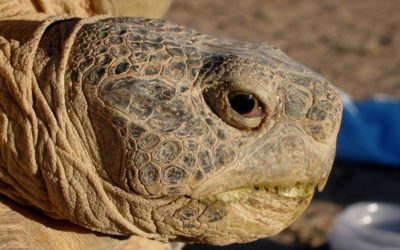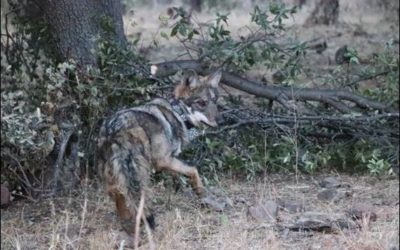OUR STORY
OUR STORY
Every year tens of thousands of species and functional ecosystems, fine-tuned by time and place, disappear.
If these trends continue, the world will become a dismal place indeed, with silent springs and little left to excite the senses except the weeds. Without doubt, the extinction crisis looms as one of humanity’s most pressing problems.
In response to this crisis, Ted Turner, his family, and Mike Phillips established the Turner Endangered Species Fund (TESF) and Turner Biodiversity Divisions (TBD) in June 1997. TESF focuses on species protected under federal and state endangered species laws, whereas TBD considers species that are at slightly less risk. These companion efforts are dedicated to saving biological diversity by ensuring the persistence of imperiled species and their habitats with an emphasis on private land.
We work closely with our partner organizations, Turner Enterprises, Inc. and the Turner Foundation, and invite collaboration with state and federal agencies, universities, and other private organizations.
Whether managing an extant population or restoring an extirpated one, our goal is population persistence with little or no human intervention. We believe that persistent populations of native species are indicative of a healthy landscape and a high degree of ecosystem integrity.
The problems involved in private stewardship are complex and effective solutions require broad-based sociopolitical, biological, geographical, and fiscal considerations. Though our projects may be controversial, slow to succeed or fraught with uncertainty, we intend to stand as a real solution to the extinction crisis.
NEWSROOM
The Bolson tortoise is home again.
Recently, the Turner Endangered Species Fund and partners including the Turtle Conservancy made restoration history by releasing captive-born Bolson Tortoises in the Chihuahuan Desert grasslands of New Mexico. The species has not been free-ranging in the United States...
History is being made on Ted Turner’s Ladder Ranch.
The US Fish and Wildlife Service, with support from New Mexico Department of Game and Fish, has decided to release a family of Mexican wolves on the Ladder Ranch in New Mexico. This is historic since Mexican wolves have never been released on private land in the...
Graduate student Julia Joos, collaborates with TESF biologists Chris Wiese and Scott Hillard for a portion of her PhD work that involves bolson tortoises in New Mexico.
Ohio University Department of Ecology and Evolutionary Biology graduate student Julia Joos studies the thermal ecology of North American tortoises to gain a better understanding of how tortoises cope with hotter and drier environments caused by climate change. By...
Every year tens of thousands of species and functional ecosystems, fine-tuned by time and place, disappear.
If these trends continue, the world will become a dismal place indeed, with silent springs and little left to excite the senses except the weeds. Without doubt, the extinction crisis looms as one of humanity’s most pressing problems.
In response to this crisis, Ted Turner, his family, and Mike Phillips established the Turner Endangered Species Fund (TESF) and Turner Biodiversity Divisions (TBD) in June 1997. TESF focuses on species protected under federal and state endangered species laws, whereas TBD considers species that are at slightly less risk. These companion efforts are dedicated to saving biological diversity by ensuring the persistence of imperiled species and their habitats with an emphasis on private land.
We work closely with our partner organizations, Turner Enterprises, Inc. and the Turner Foundation, and invite collaboration with state and federal agencies, universities, and other private organizations.
Whether managing an extant population or restoring an extirpated one, our goal is population persistence with little or no human intervention. We believe that persistent populations of native species are indicative of a healthy landscape and a high degree of ecosystem integrity.
The problems involved in private stewardship are complex and effective solutions require broad-based sociopolitical, biological, geographical, and fiscal considerations. Though our projects may be controversial, slow to succeed or fraught with uncertainty, we intend to stand as a real solution to the extinction crisis.


